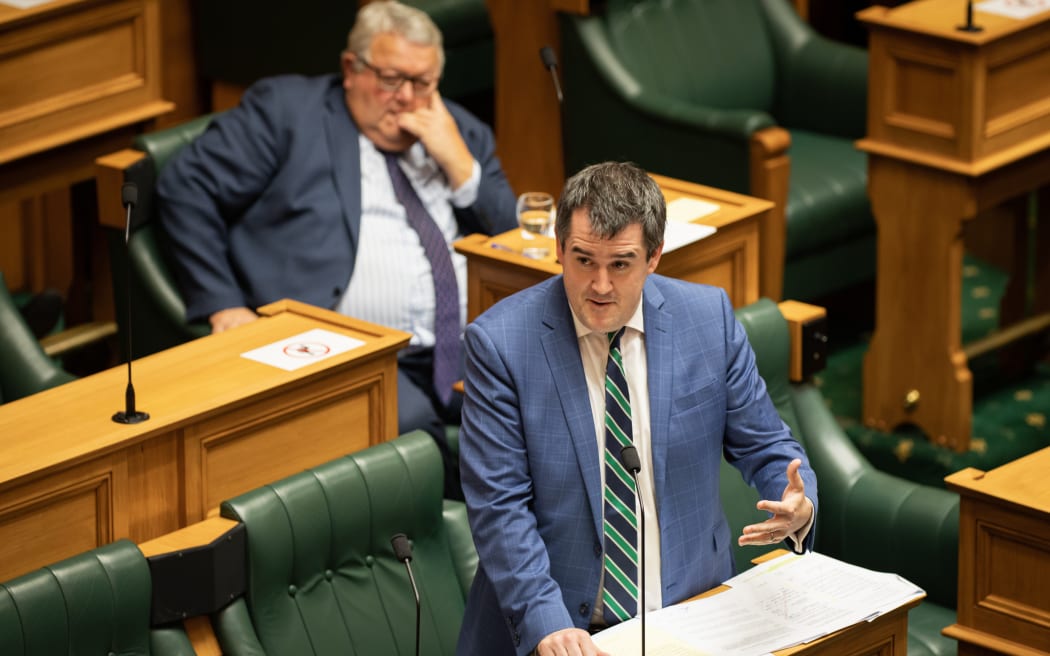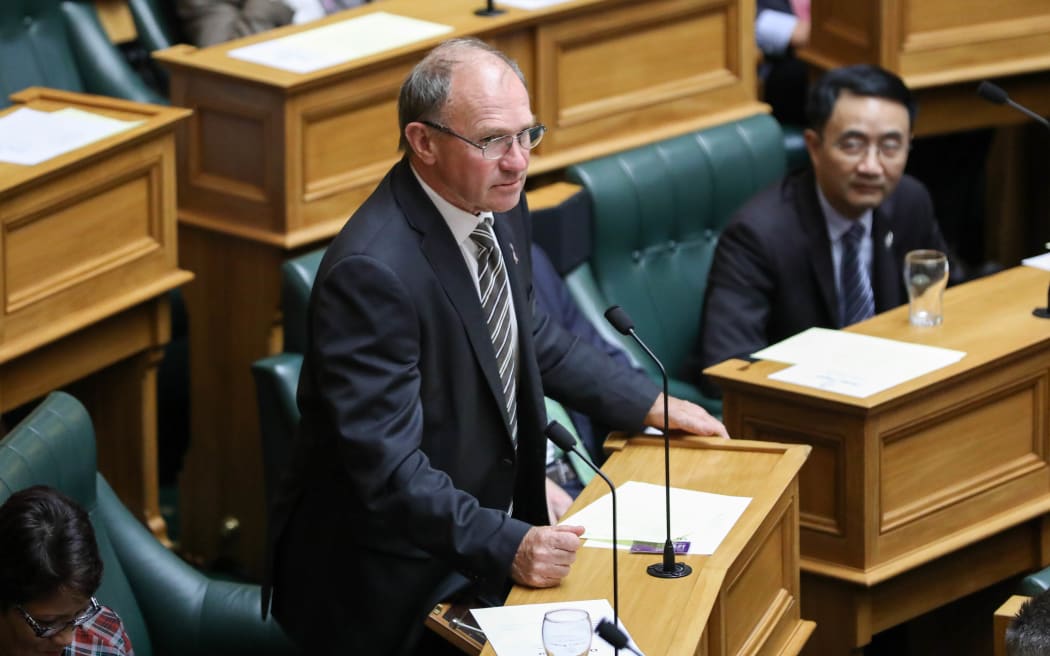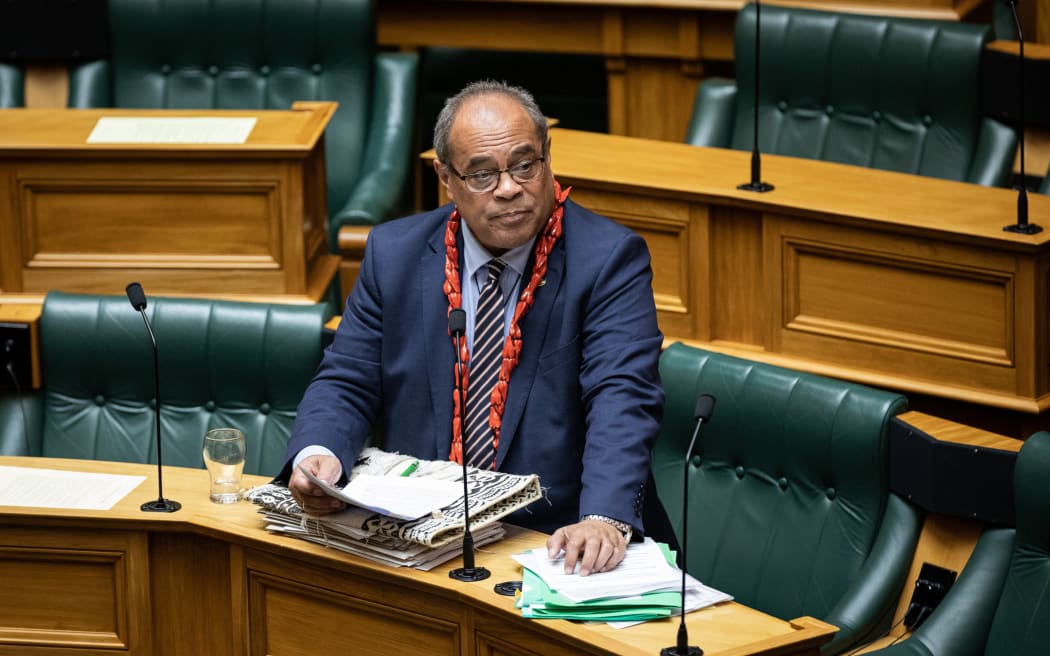When MPs stand up and shout at each other in the chamber, it’s more than likely what they’re doing is advocating. Whether it be on behalf of their communities, for legislation and pet projects, on matters of policy and accountability, they advocate for those they represent. After all, they are in the House of Representatives.
Though some may argue the prestige of the United Nations General Assembly, or the Oxford Union takes the cake, for most New Zealanders, Parliament is perceived as the paramount platform for robust discourse, oratory and debate. Debating - and more broadly speaking - in the House is a pretty integral facet of doing your job if you’re an MP. If you’re a party whip (or musterer, in the case of the Greens) having an MP that radiates confidence in Question Time or a General Debate is a massive asset to have in caucus. Conversely, being an MP who struggles with oratory can be…. a challenge.

Former competitive debater and National MP Chris Bishop has been in Parliament for 9 years during which time nothing has dissuaded him from the importance of persuasion as an art form. Photo: Johnny Blades / VNP
Thankfully, most MPs aren’t complete newbies to public speaking and debating when they get to Parliament. MPs may have competed in schools debating, others have had opportunities to kōrero on the marae, some have debated in courts, some have spoken in church, some have debated the price of a kilo of Merino wool.
Among the current cohort of MPs, National MP Chris Bishop stands out as your classic school and university debater. For good reason too. Bishop competed for Victoria University, and in the Australian and World Champs (he was first speaker, by the way).
Bishop reckons that “the skills that debating teaches you around being able to phonetically group arguments together being able to construct a speech” were helpful to him in giving him a strong foundation of oratory and debate to use in the House.
But how does competition-style debate compare to doing it in the House?
Bishop says “parliamentary debating tends to be a bit more free flowing. In Parliament, you tend to have asides from other speakers, people yelling things out in the middle of your speech, trying to put you off your stride or make funny jokes”. The jokes, he adds, are “typically unfunny”. Perhaps, nowhere is this more the case than in the General Debate.
“There’s no topic, it's five minutes, and you can just go for a lash and talk about whatever you like and get stuck in.” Bishop says. “And that's where you tend to see the more political speeches in which the people will attack the opposition.”
So is the House just a way for school debating nerds to relive their glory days?
According to Bishop, “Parliamentary Debate is really important, because it allows you to ventilate arguments, and genuinely have a contest of ideas around a particular legislative proposal, or whatever the government's up to on a particular day.”

Rural MP Ian McKelvie initially felt more comfortable on a farm than debating in the chamber. Photo: VNP / Daniela Maoate-Cox
It’s fair to assume that it would take some practice for a new MP to get used to the style of speaking in the House. Especially coming from environments that couldn’t be further from the Westminster, uber procedural way of facilitating speech and debate.
Bishop’s party colleague, Ian McKelvie, the MP for Rangitikei, thinks the way members speak in Parliament is largely influenced by their background. When McKelvie first came to Parliament, he felt more at home on a farm than sitting in the chamber. He says “practice makes perfect. Well, not perfect, but it certainly improves you”.
And what of all the one-upmanship during debates ?
“I don't tend to engage in what you might call a confrontational style of debate,” McKelvie says. “I don't think there's any point in it, that no one listens to it. And I don't think anyone's particularly interested.”
Every MP comes to parliament with their own style. Labour MP for Mangere, Aupito William Sio believes his religious and Pasifika backgrounds inform the way he speaks in the House.
“It manifests with me raising my voice," he jokes. “It manifests with me using allegories or symbolism or using old sayings that might be relevant to this occasion. And that comes quite helpful, because some of the legislation is just boring. It adds some sort of flavor and color to the debate.”

Aupito William Sio in the House Photo: ©VNP / Phil Smith
“I think everybody's got their own style. In the Pacific, you can also just be as brutal” (as in the House debates) Sio says. “Although, everybody ultimately is related to one another in the Pacific. So there's this constant being respectful, mindful of maintaining relationships that are ongoing.”
No one particular style reigns supreme in terms of speaking and debating in the House. Granted, some styles are more and less persuasive, but ultimately, the House of Representatives - does just that - represent. That representation - of backgrounds, perspectives, and communities - can be mobilised through speech and debate - and as is sometimes the case, just plain yelling at each other.
By the way, if you’re wondering who Chris Bishop admires as debaters in the House, he mentioned James Shaw, Grant Robertson, and Chris Hipkins. He also name-dropped former MPs Winston Peters, Michael Cullen, Richard Prebble and, no surprises - David Lange.

